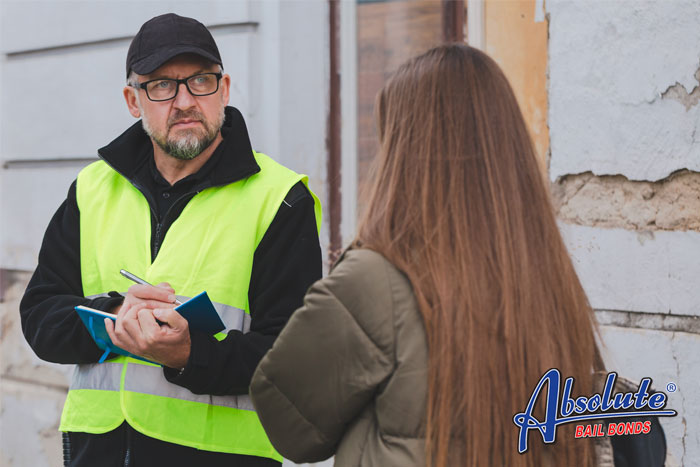
How to Report a Crime
You’ve seen a crime happen. Now you’re in a bind. Are you legally required to report the crime? Who should you report the crime to? How do you even go about reporting a crime? How long do you have to report the crime? It’s amazing how much stress simply being an innocent bystander can cause.
Are You Legally Required to Report a Crime?
The answer to whether you’re legally required to report a crime is both yes and no.
In most cases, the State of California is happy to let you decide whether you should report the crime. Failure to do so probably won’t get you into legal trouble but there are some exceptions.
The exceptions include:
- Rape
- Child Abuse
- Murder
In the case of severe crimes that the state feels you’re legally required to report, failure to do so will result in you being charged with aiding and abetting.
Who Do You Report a Crime To?
When you know about a crime and want to report it, you need to contact your local police station. You can do this in person or via a phone call. People at the police station will provide you with additional information that includes the exact officer you should speak to, what type of details they need to know, and if they’ll have follow-up questions.
In the case of extremely serious crimes, crimes that require immediate medical attention, or crimes that are in progress, you should call 911.
How to Report a Crime
The best way to report a crime is by staying calm, cool, and collected. While reporting the crime stick to just the details, and resist the urge to start sharing your opinions and thoughts about the situation. At this stage, plain facts are the only thing the police require.
Pay attention to the questions the person you’re speaking asks and answer them honestly. If you don’t know the answer, make that clear.
How Long Should You Wait to Report a Crime
The general rule of thumb is that you should report a crime as quickly as possible. Not only does this alert the authorities and allow them to take immediate and appropriate action, but it also allows you to share the details of the case while your memory is still sharp. Waiting even a few hours can drastically impact your ability to recall exactly what you saw and experienced.
Have you ever been in a position where you had to report a crime? How did you handle the situation?

Are You Impacted by California’s Mandatory Reporting Law?
You just watched your neighbor commit a crime. You know what they did was illegal, but you aren’t sure what you should do about the situation. You don’t want to get anyone in trouble. On the other hand, you know you don’t like the idea of living next to someone who blatantly breaks the law.
Assuming that your neighbor didn’t do break a minor law, like jaywalking, it’s in your best legal interest to report the crime to the authorities. The reason for this is simple. If your neighbor gets caught and the police find out that you’ve been turning a blind eye to the situation, you could land in hot water. This is especially true if your neighbor is abusing a roommate/parent/friend, or if they are involved in a child endangerment/neglect situation.
Some people don’t realize that their chosen profession requires that they report any criminal activity that they have knowledge of. California created Mandatory Reporting laws that require specific professions to report criminal activity. Professionals who are bound to adhere to the Mandatory Reporting Laws include:
- School officials
- Anyone who works in law enforcement
- Social workers
- Members of the clergy
- Firefighters
- Therapists
If you are a member of any of these professions, you’re legally required to report instances of:
- Extreme verbal abuse
- Physical abuse/assault
- Sexual abuse
- Child neglect
- Child endangerment
Failing to obey the Mandatory Reporting Laws means could come at a steep price. If you’re found guilty, you could be sentenced to spending 6 months in a county jail and be charged a $1000 fine.
What if You Discourage Someone From Reporting a Crime
If someone you know has knowledge of an abuse or child endangerment crime, and you convince them to stay quiet, the law can come after you. If found guilty of willfully preventing someone from stepping up and reporting a crime to the proper authorities, you’re looking at a year in jail and a $5000 fine.
Mandatory Reporting Laws Require that You Think Before you Confide in Someone
If you have broken a law or think you know someone who has, you need to be aware that if you discuss the situation with someone who’s profession forces them to report the alleged crime, they will likely have to mention your name. The police will likely be very curious about why you failed to report the abuse right away. It will look better and not put your friends in an awkward position if you report the situation yourself.

Legal Responsibilities Attached to Witnessing a Crime in California
As you were walking your dog, you witnessed a hit and run. No one was hurt, but the fleeing car did do quite a bit of property damage. Suddenly you’re in the middle of a moral dilemma. Should you report the crime or should you pretend it didn’t happen and simply go home.
While no one can tell you what you should do, you should know that if the police find out that you witnessed the hit and run, or any other type of crime, you should report the incident. There are some crimes, such as child abuse, where failing to report the situation could land you in hot legal water.
Why You Should Report the Crime
Witnessing a crime triggers a strange surge of emotions. On the one hand, you know you have a moral responsibility to tell the authorities what happened. On the other hand, you can’t stop thinking that doing so will make you some sort of tattletale, a title you worked hard to avoid while you were in grade school.
What you have to understand that telling the police about a hit and run driver, or blowing the whistle on white-collar crime is not the same thing as telling your teacher that your best friend is jumping in mud puddles and splashing water on everyone.
When it comes to crime, no matter how small the issue might be, you have a moral obligation to report it.
How Much Time do you Have to Report the Crime?
When it comes to reporting a crime, sooner is better than later. Reporting the crime right away prevents someone else from going to the police and telling that you were on the scene and have failed to report the incident. The other advantage of reporting the crime as quickly as possible is that your memory of the incident will be clear, making you a credible witness.
What Happens if You Don’t Report a Crime?
There are some crimes, particularly those that involve children, that you’re legally required to report. Failing to report a crime that involves a child comes with serious legal ramifications. If you know a child is being abused or neglected you are required to report the crime to a child welfare professional or a police officer. You have to report the situation within 36 hours of witnessing the event.

